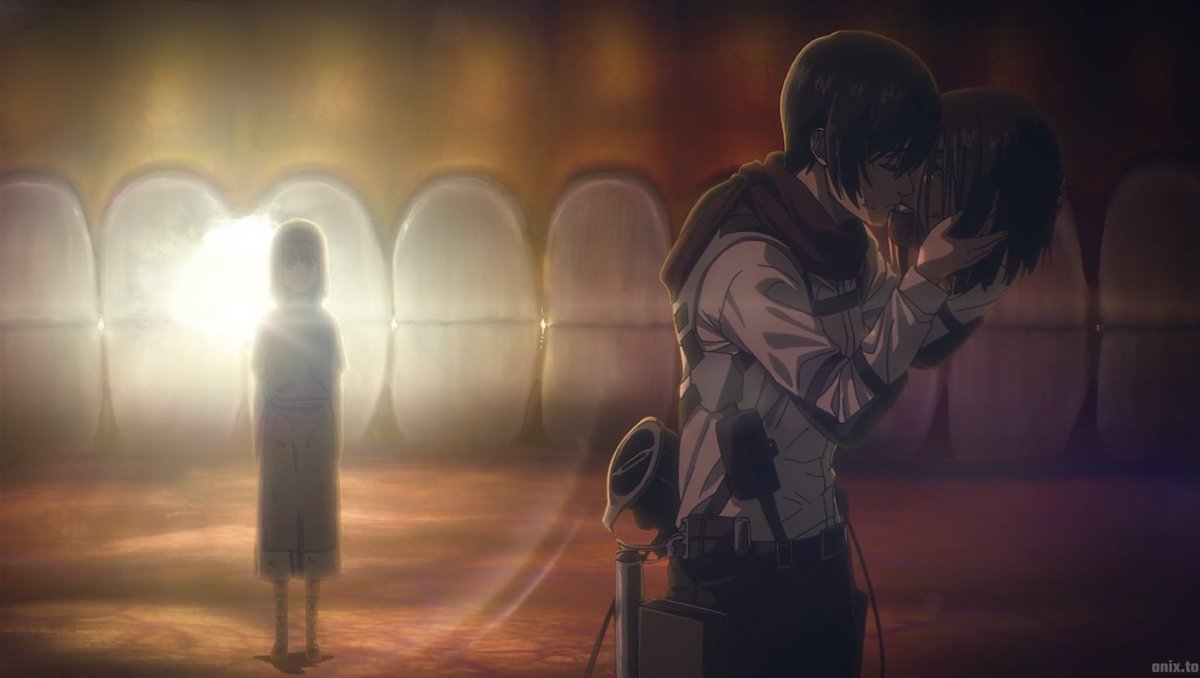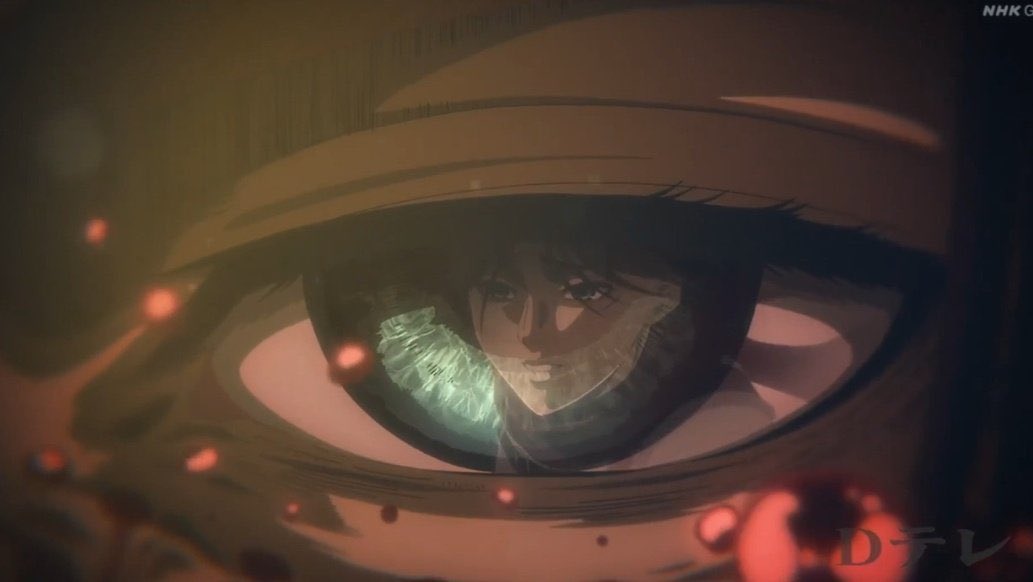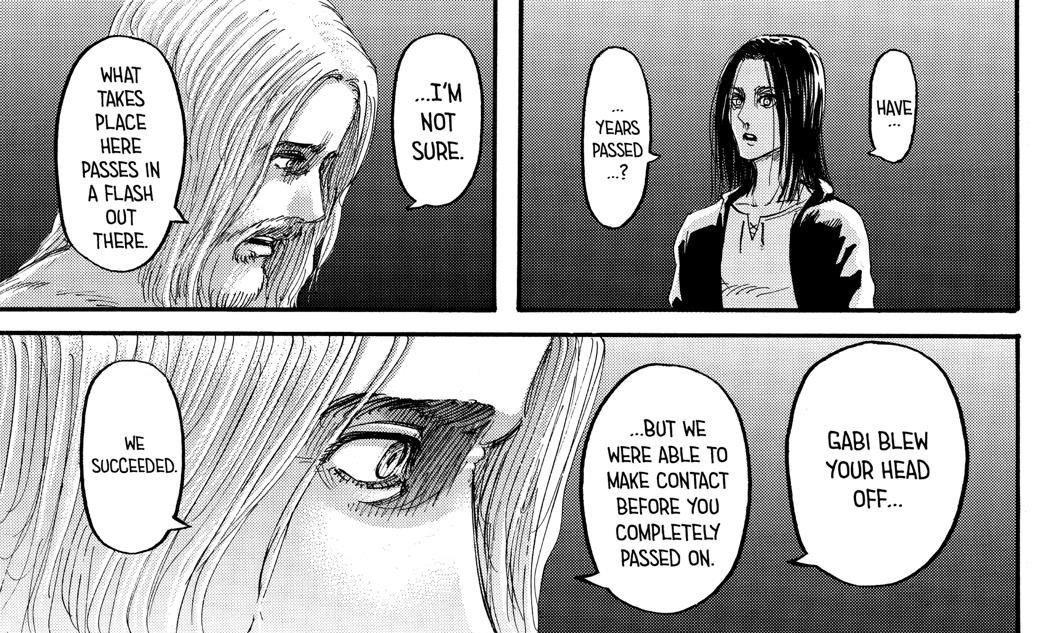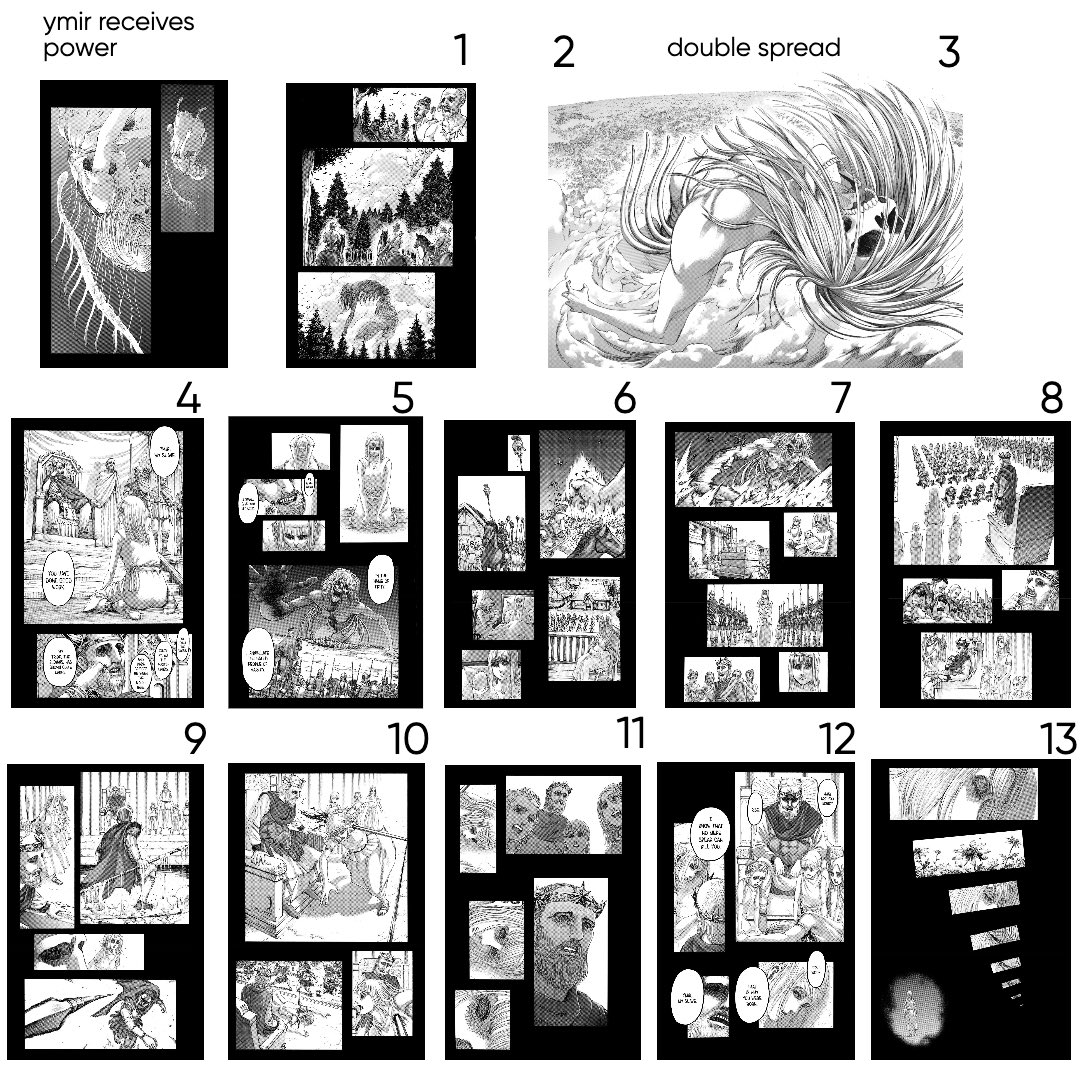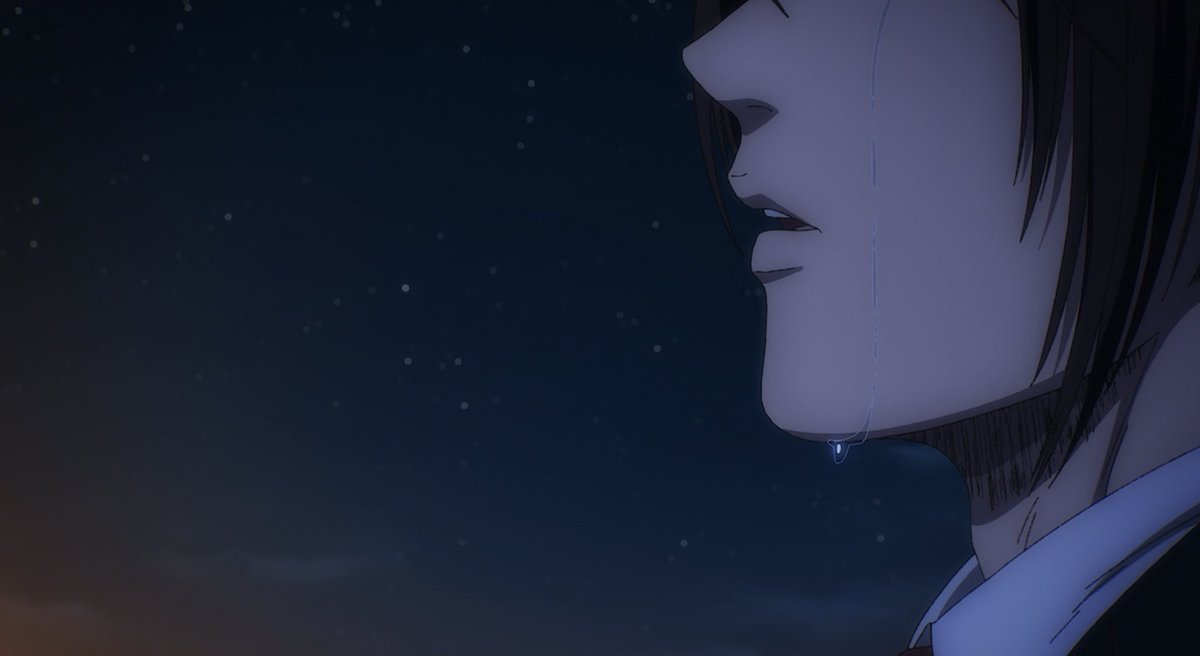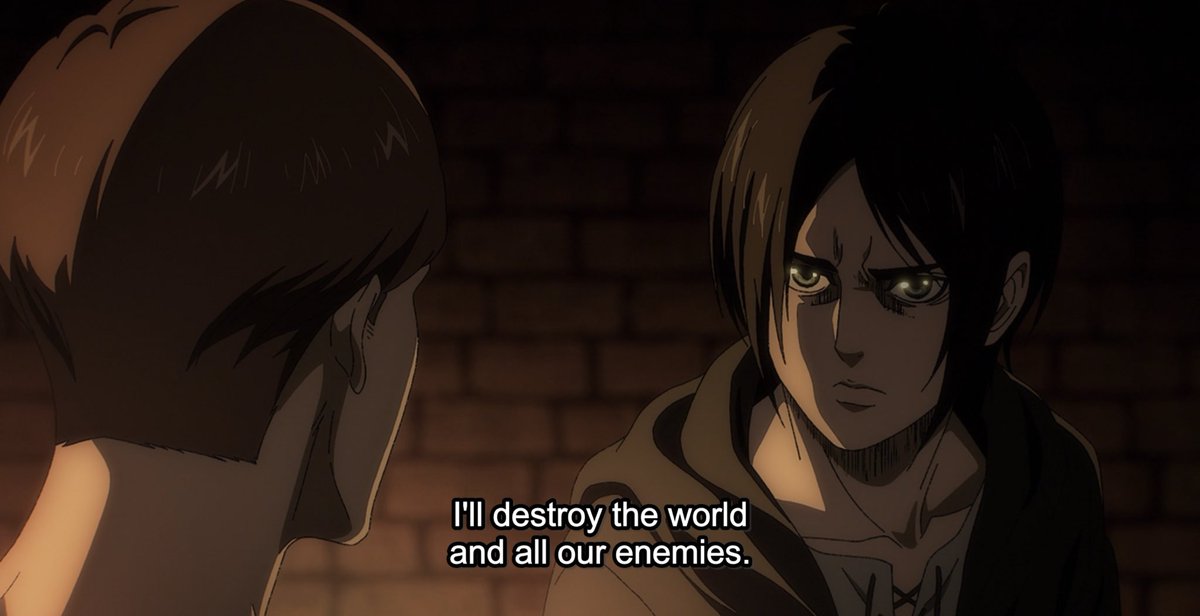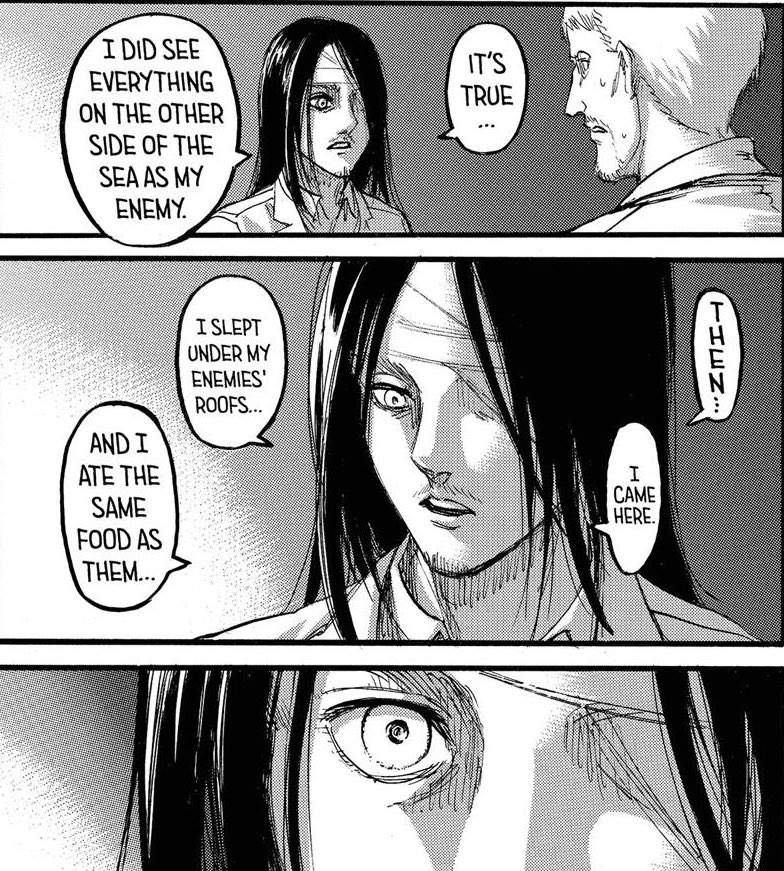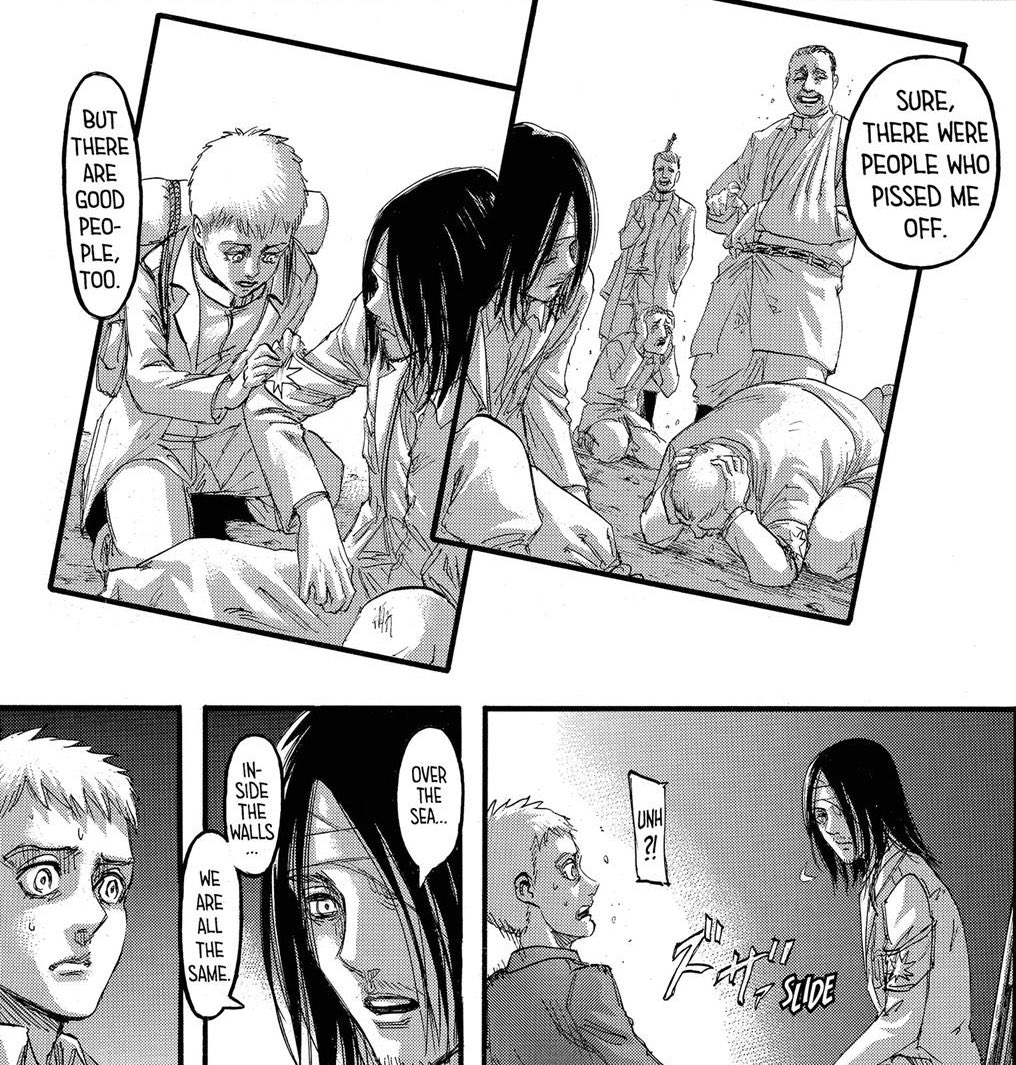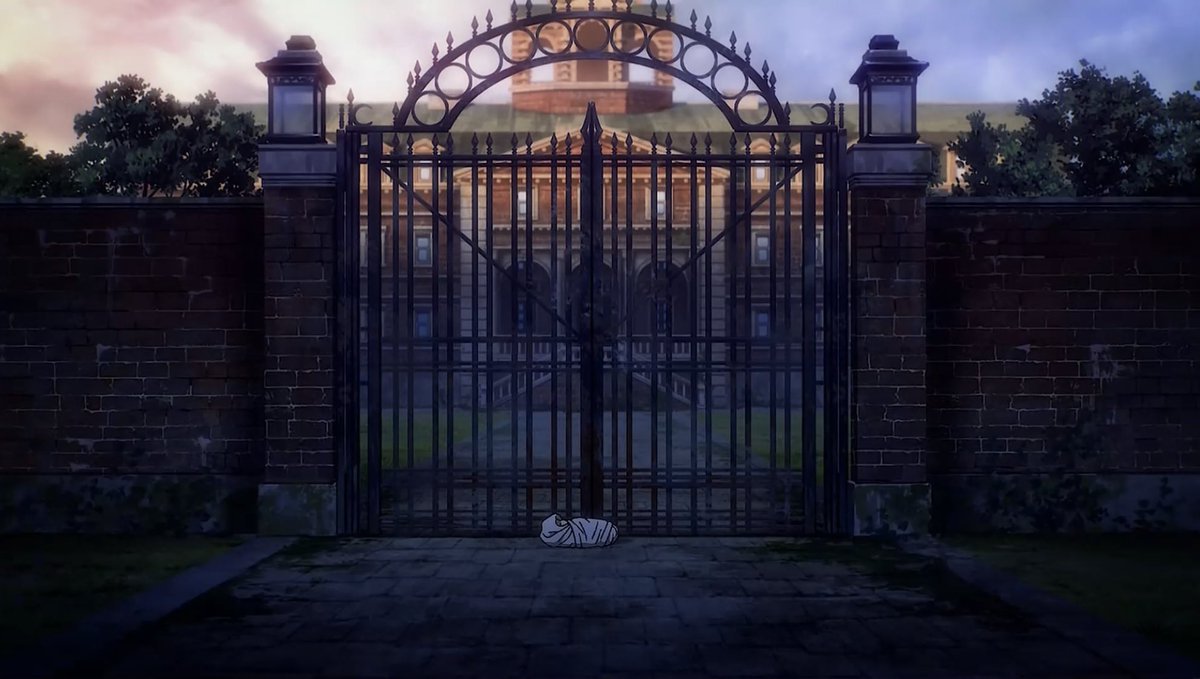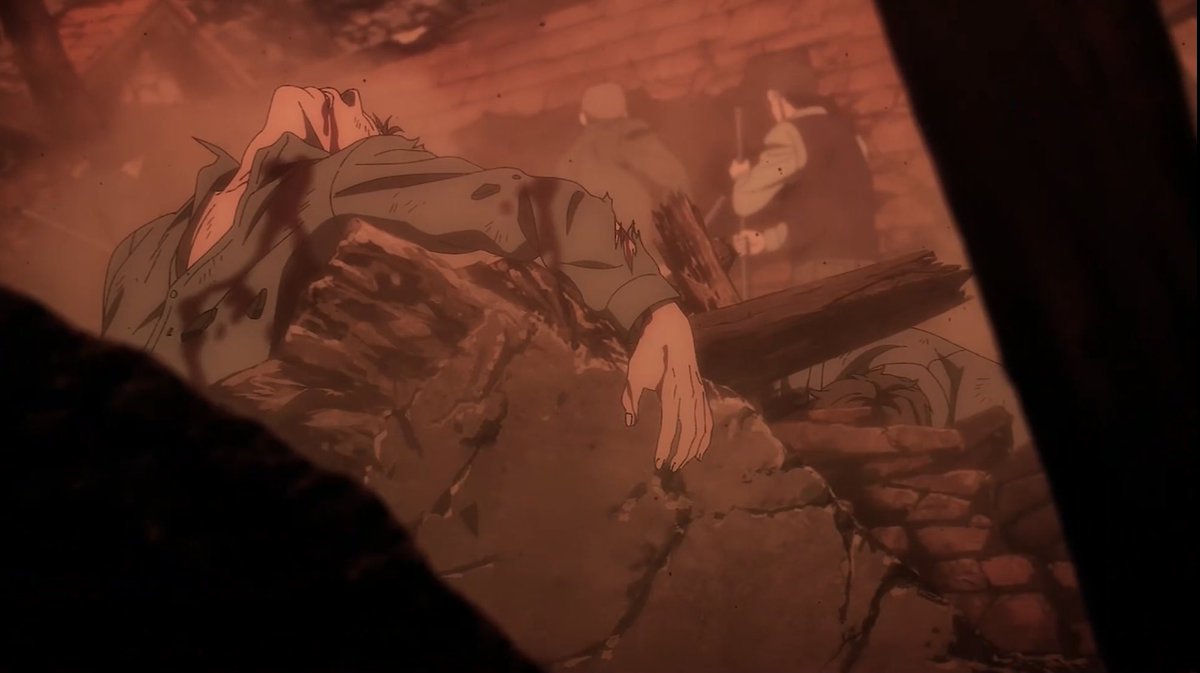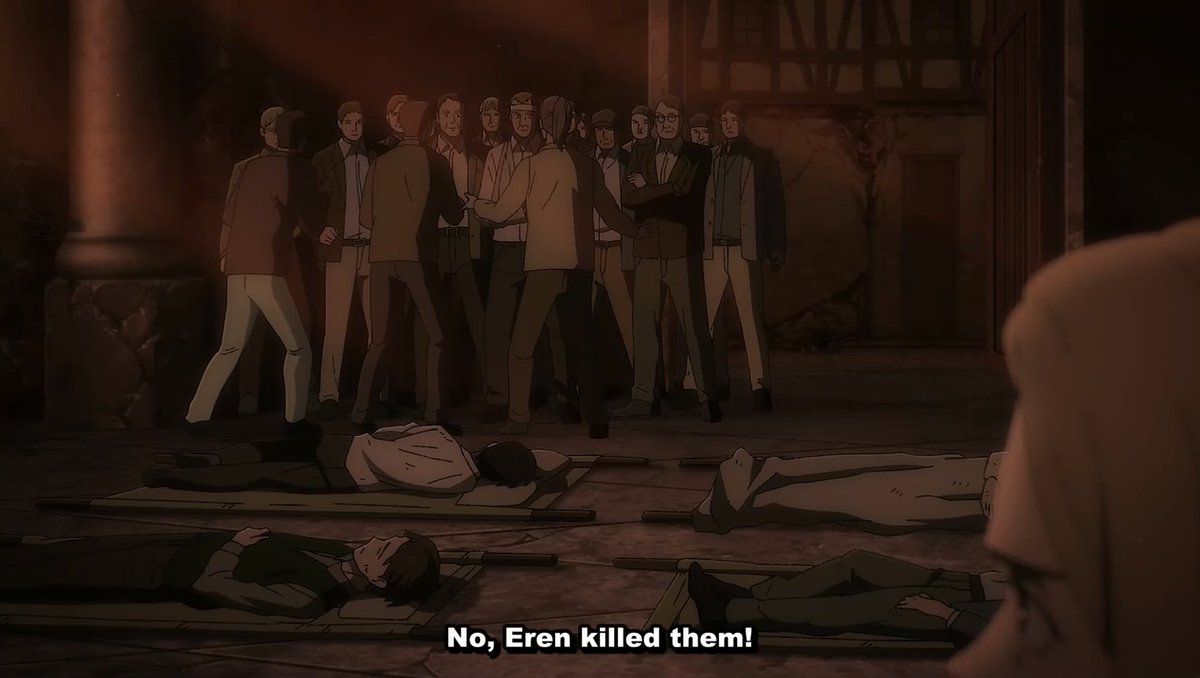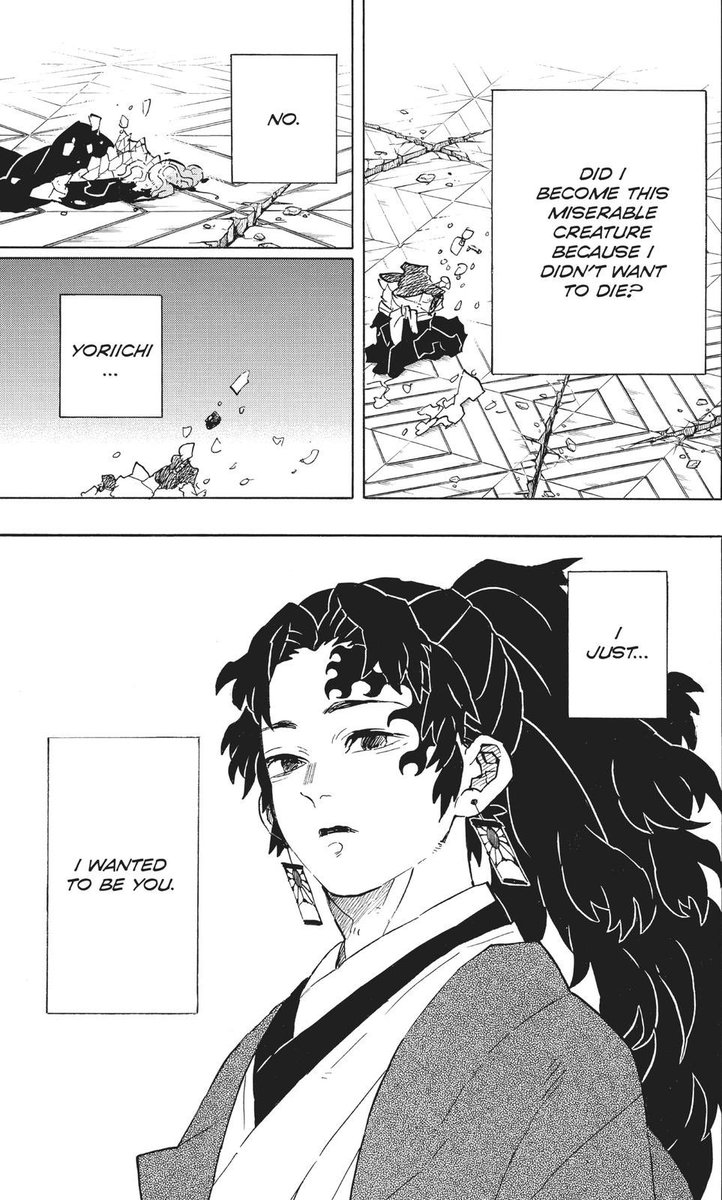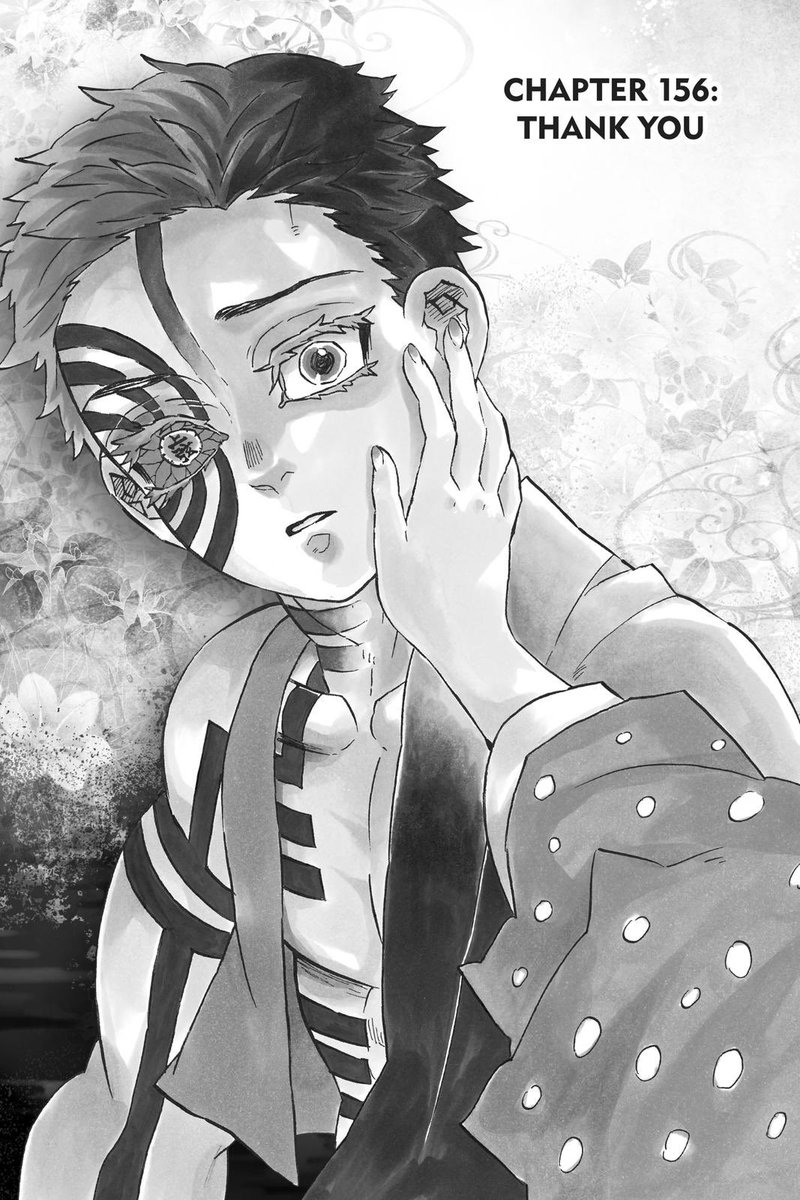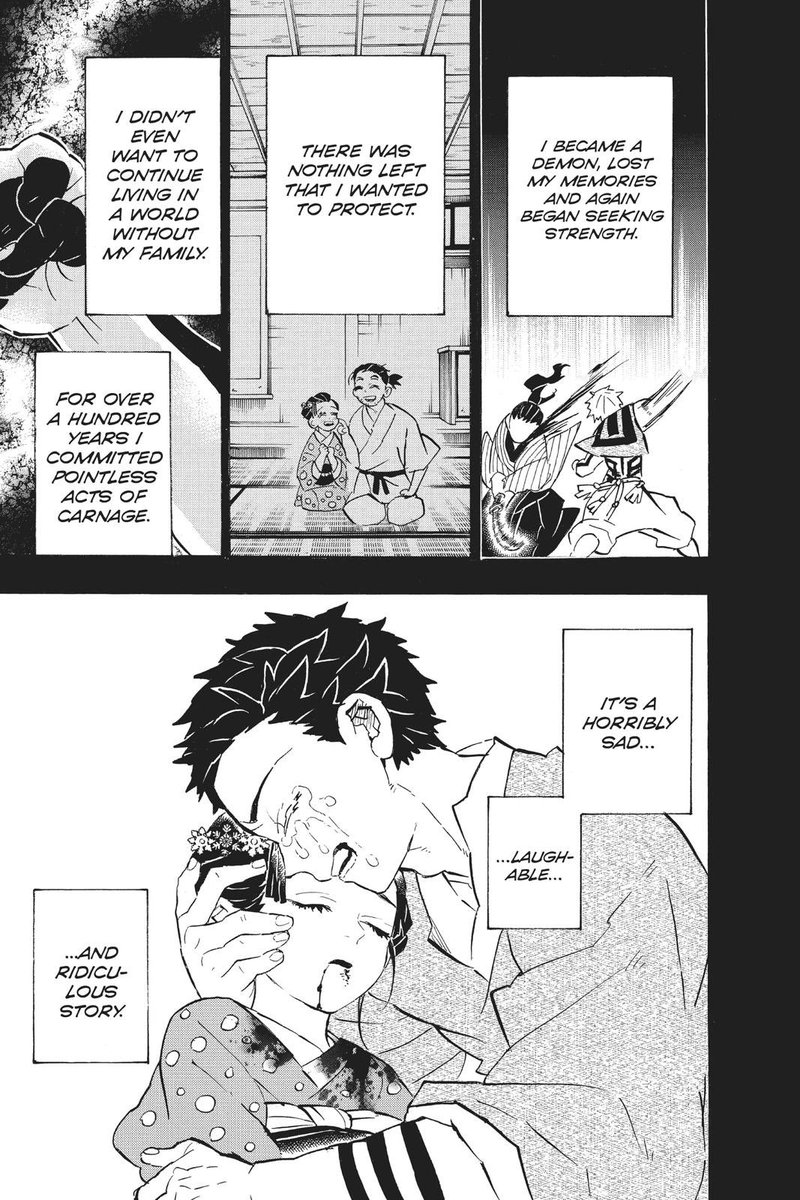To structure this i’ll be analysing the freedom panel and how it ties to eren’s characterisation, then look at ‘grounded’ and how the interplay between the two strengthens him both narratively and thematically. +
Despite this being a main motivator for eren, it’s that ‘sight’ after all and the concept he was ‘drunk’ on in order to keep moving forward, eren isn’t truly free in chapter 131. There are multiple pieces of evidence that point to this. + 



He takes his child form which is symbolic of ignorance, something he himself stated as being the thing furthest removed from freedom. We see his real head at the end of 131, eyes closed to the horrors he’s inflicting, further emphasising this ignorance. + 


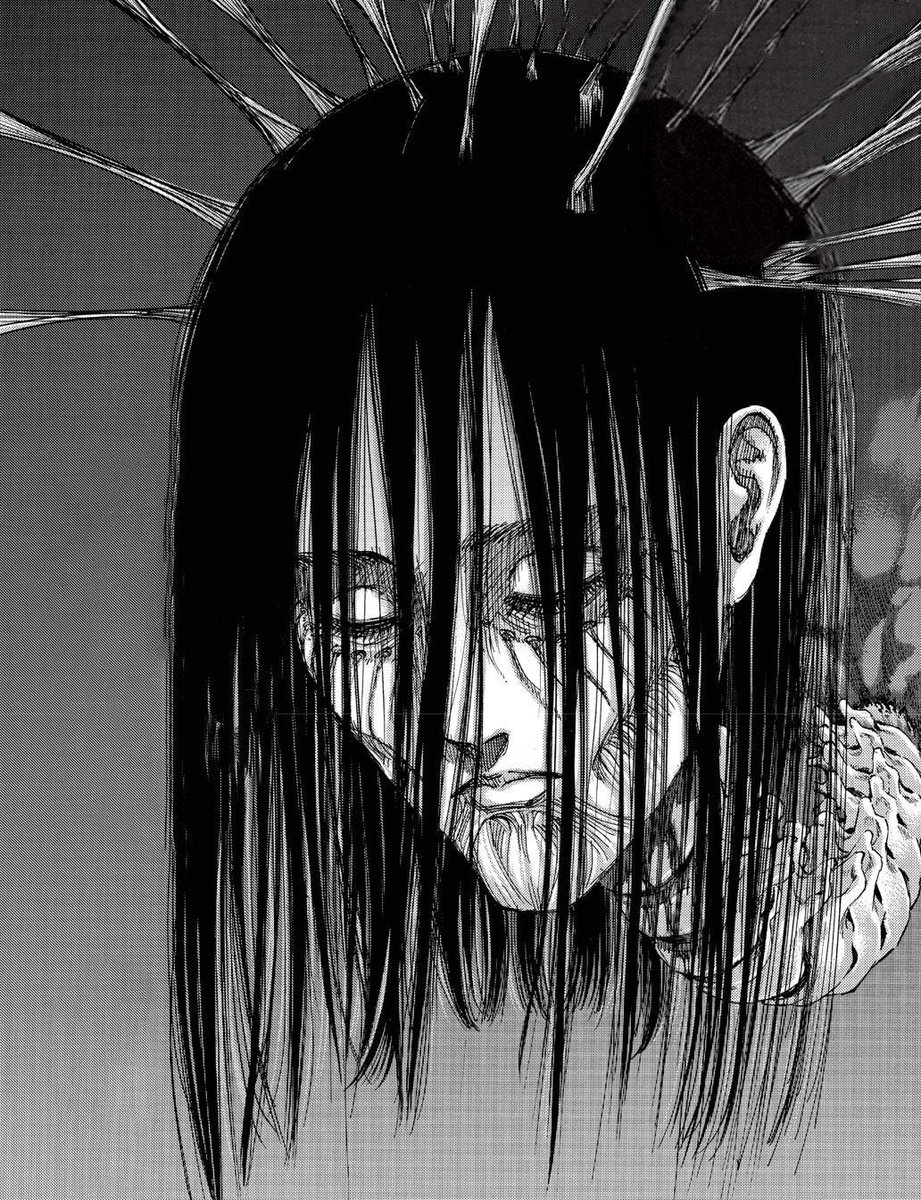
It looks like he’s flying but he’s actually on top of titan smoke and below clouds (symbolically trapped), where the titan smoke blocks his view of both the sites he actually equates to freedom and of the deaths below (further ignorance). + 





Furthermore, the titans of the rumbling enclose him, acting as the walls that he equated to a lack of freedom growing up, the panelling explicit. It’s the significance behind him telling armin that he is the one who will be able to go beyond the ‘walls’, as eren never could. + 


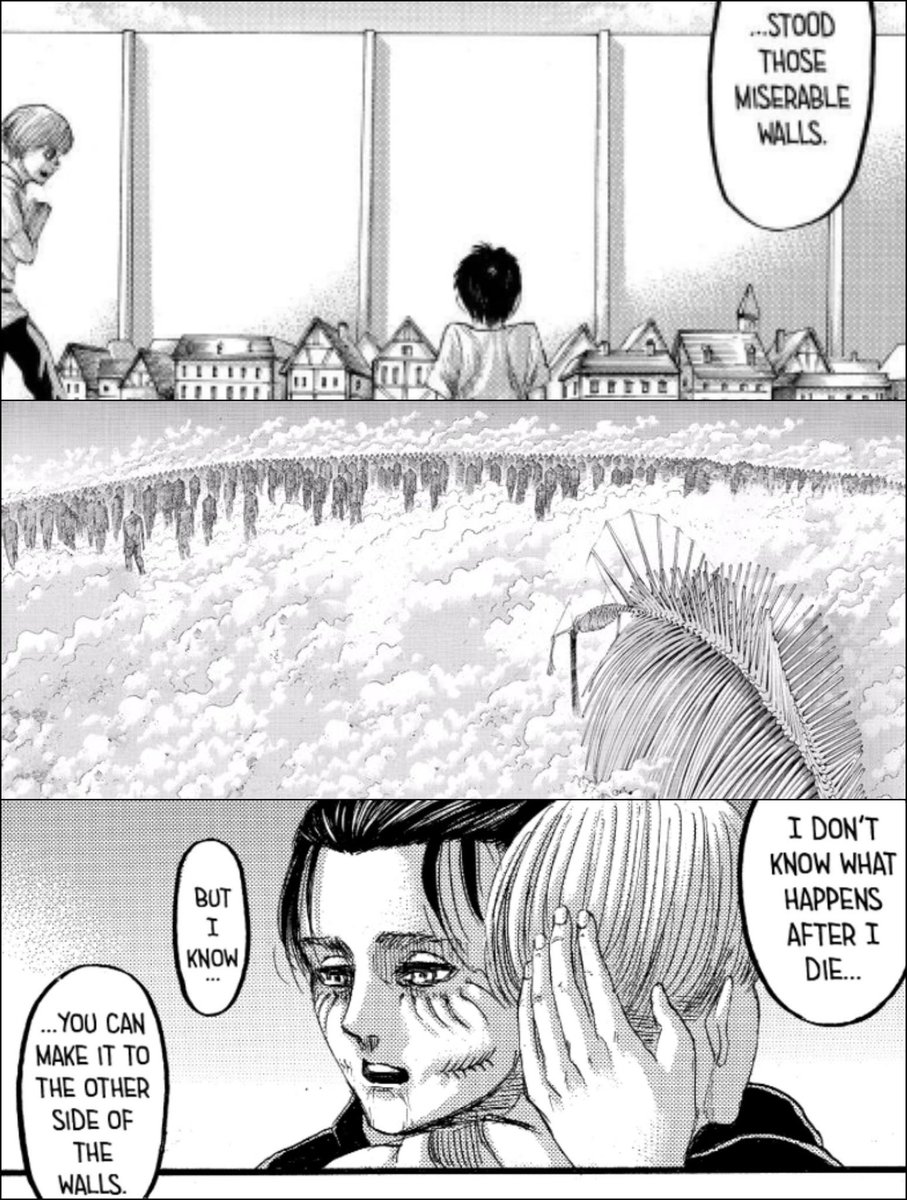
His founding titan form also takes the shape of an enormous skeletal puppet held up by strings, his bones the shape of a cage (ribcage haha). However what’s important is that despite all this he still moves forward which is why it ties so well to grounded and his duality. + 



The first thing to understand about grounded is that it’s taking place at the same ‘time’ as freedom as it’s in his conversation with armin. It’s quite literally the two ‘sides’ of eren yeager and the time mechanics of paths makes the interplay brilliant. + 



The duality is heightened as the grounded panel is the mirror opposite of freedom in every conceivable way. Adult v child, flying v on the ground, looking down v looking up, eyes wide v half shut, alone v with armin, and most importantly smoke v clarity. + 



Neither work without the other because only together does it provide the full picture. Eren moves forward due to his nature and goals, but faces the full reality of those choices as he always has. This was his choice and he must accept the weight that comes with it. + 

It’s happened before and it’s what makes him moving forward so layered. He changes from ‘they will die’ to no ‘i will kill them’, because he accepts culpability in the end which thoroughly breaks him, as we see with ramzi and in 139. He can only apologise, but he still did it. + 





This is just his nature, something he ‘may just have been born with’. It’s incredibly consistent as it’s always been the case. He ‘just can’t accept an end like that’, it’s because ‘i was born into this world’ and in his own words ‘i am just me, i always have been’. + 







There’s also another layer that’s tied to isayama’s commentary on transcendence. Despite gaining the power of God eren is still human, still a slave to something, and that shackles him just like it does to uri and to ymir fritz. + 


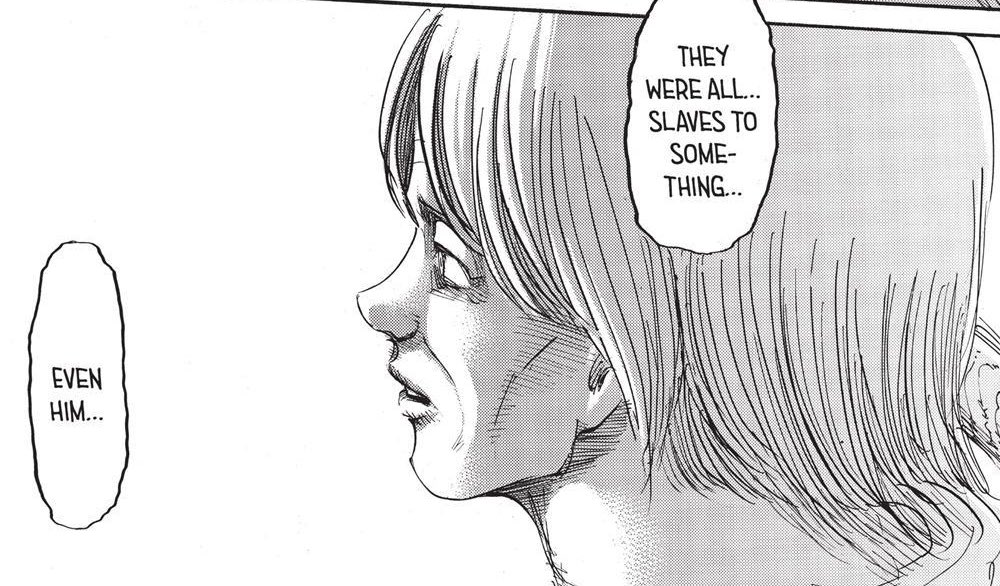
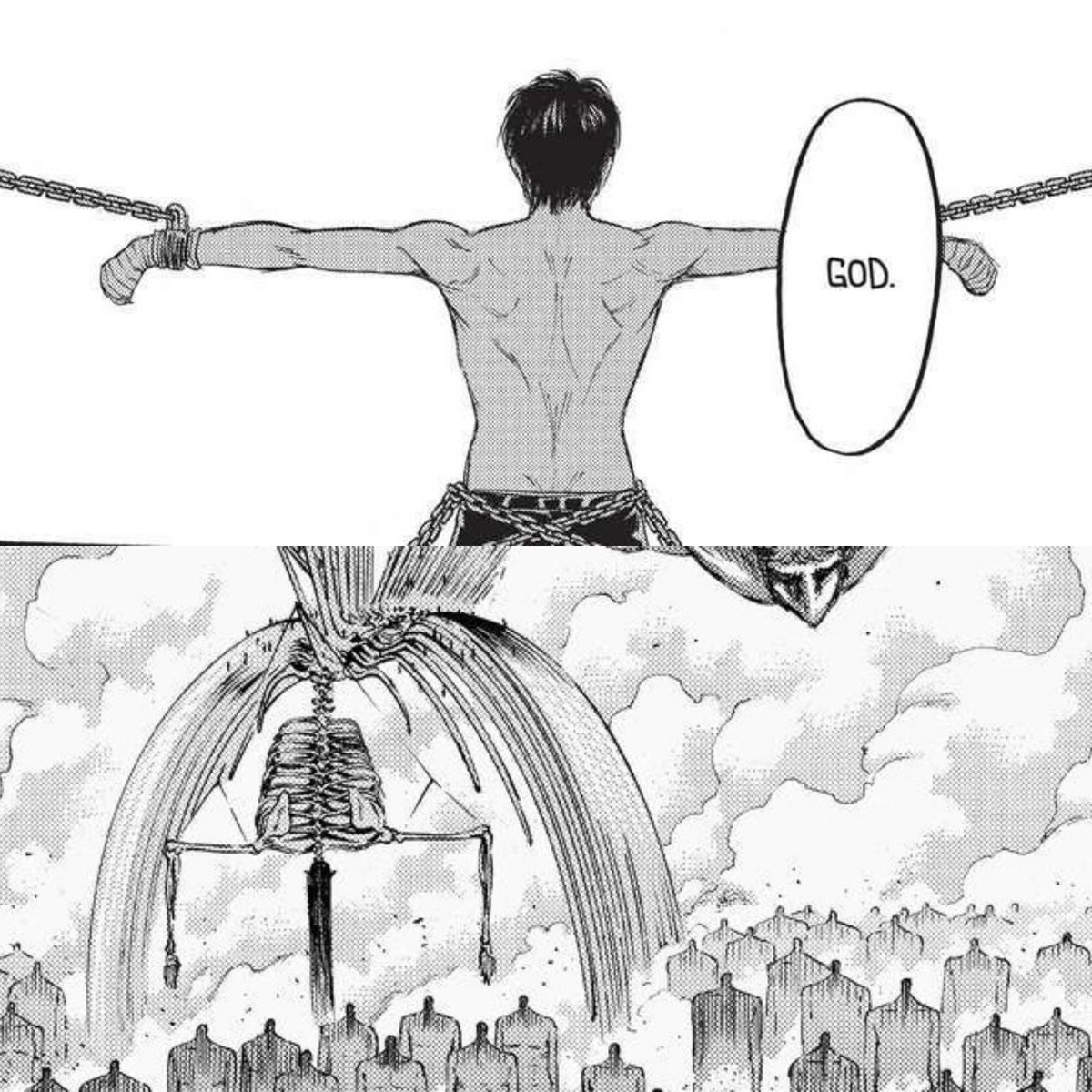

As Rod Reiss said, the choice is in God’s hands. Eren’s choice was the rumbling, to keep moving forward, to reach that scenery but he is still a human being who suffers the weight of those choices as shown through the interplay of grounded and freedom. + 

That’s essentially why i think the two moments can only be as brilliant as they are within the context of the other, and how thats another example of eren being a fantastic character to the very end. Hope you all enjoyed reading ! 

• • •
Missing some Tweet in this thread? You can try to
force a refresh



